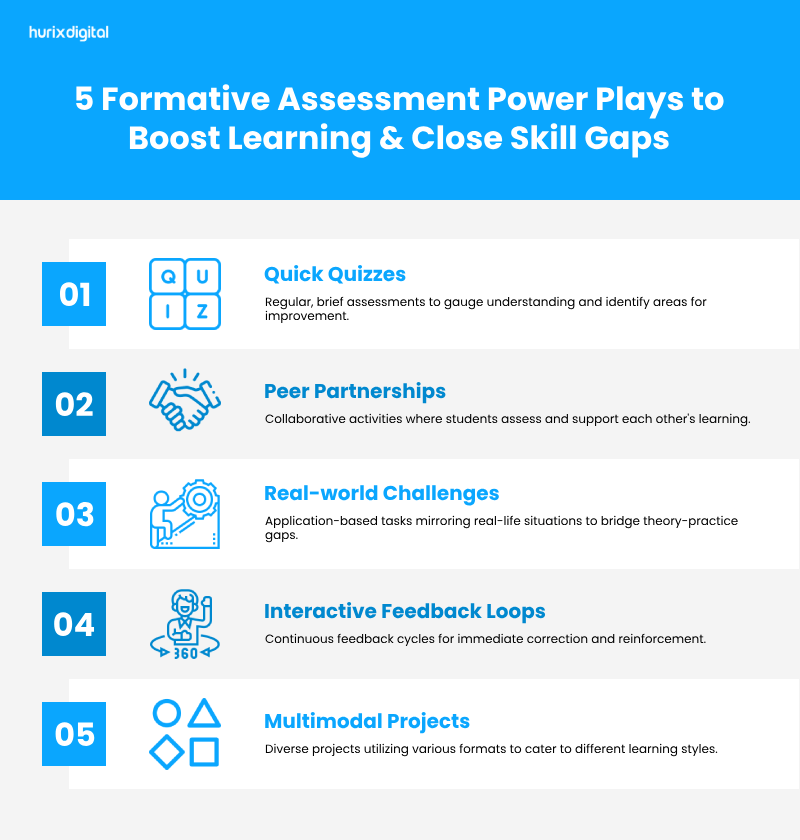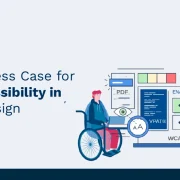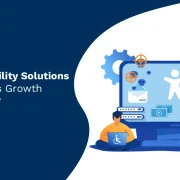In the realm of education and workforce development, formative assessments play a crucial role in shaping learning experiences and addressing skill gaps effectively. Here are five power plays that can significantly boost learning outcomes and close skill gaps through strategic formative assessments.
Supercharge your formative assessments with Hurix Digital’s expertise. Contact us to explore innovative solutions that enhance learning, close skill gaps, and elevate your educational or corporate training initiatives.

Understanding Formative Assessment
Formative assessment is crucial in the educational process, offering ongoing feedback that informs teaching and enhances student learning. It focuses on understanding student progress throughout the learning cycle, not just at the end.
Quick Quizzes: A Tool for Immediate Assessment
Quick quizzes are an effective formative assessment strategy, allowing educators to gauge student comprehension swiftly. Research shows that frequent low-stakes quizzes can increase retention by up to 50%. This immediate feedback helps identify topics needing further clarification and understanding.
Peer Partnerships: Collaborative Learning
Peer partnerships foster a collaborative environment. When students assess each other’s understanding, it enhances learning and builds essential communication skills. Studies indicate that peer assessment can increase engagement and retention by encouraging students to articulate their understanding of the material.
Real-world Challenges: Bridging Theory and Practice
Practical, application-based tasks are essential in formative assessment. Engaging students in real-world challenges helps connect theoretical knowledge with practical application, boosting motivation and making learning more relevant, leading to a deeper understanding of concepts.
Interactive Feedback Loops: Continuous Improvement
Interactive feedback loops are crucial for effective formative assessment. Continuous feedback allows students to adjust based on real-time data, significantly improving performance as learners feel supported in their progress and development.
Multimodal Projects: Catering to Diverse Learning Styles
Incorporating multimodal projects in formative assessment caters to different learning preferences. Using various formats—such as visual, auditory, and kinesthetic—engages all students. Research indicates that expressing understanding through different mediums improves the overall learning experience.
Conclusion
Incorporating these formative assessment strategies can significantly enhance student learning and address skill gaps. By focusing on continuous feedback and collaborative activities, educators create a dynamic and supportive learning environment. Formative assessment aids in identifying areas needing improvement and fosters a culture of growth and learning.




